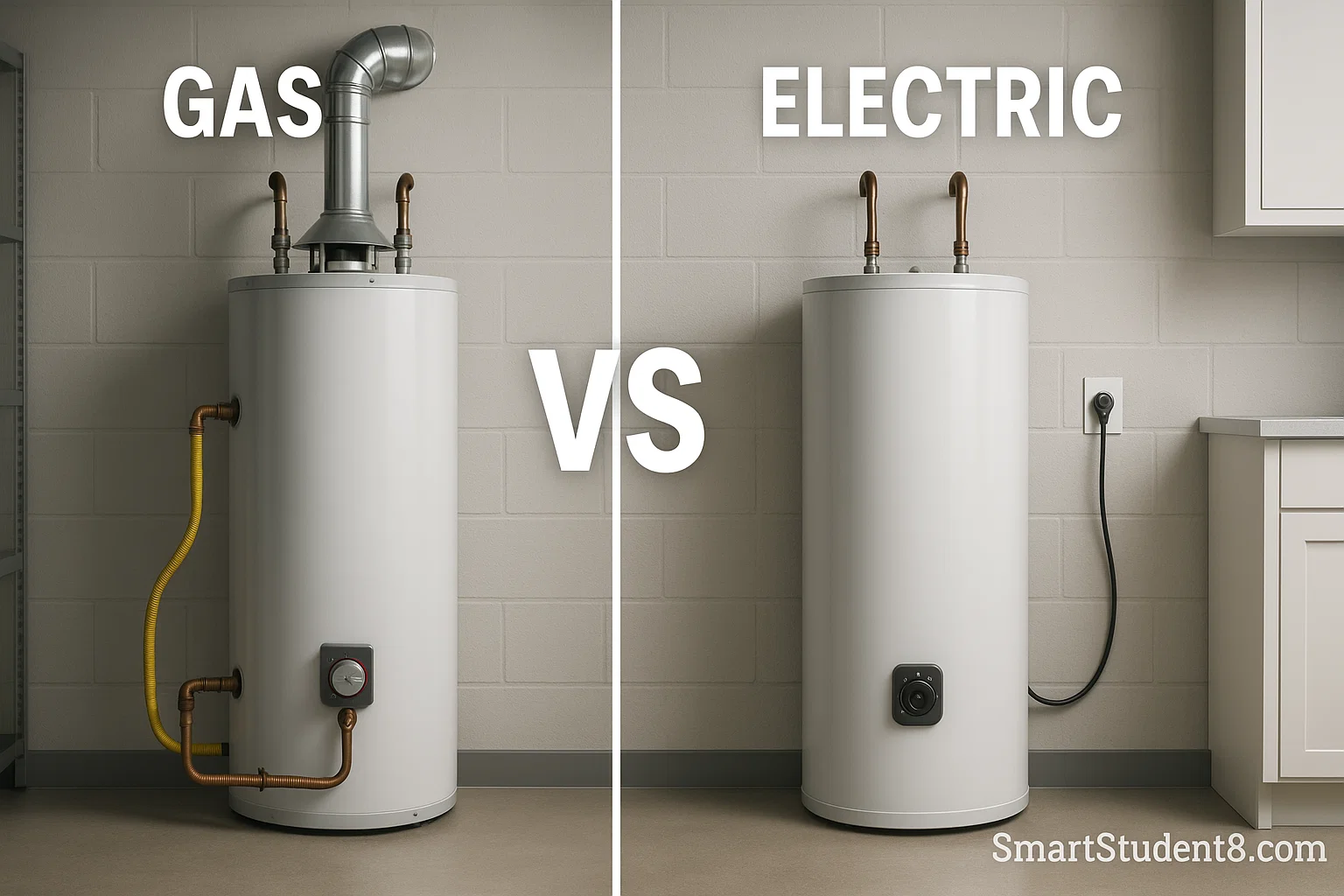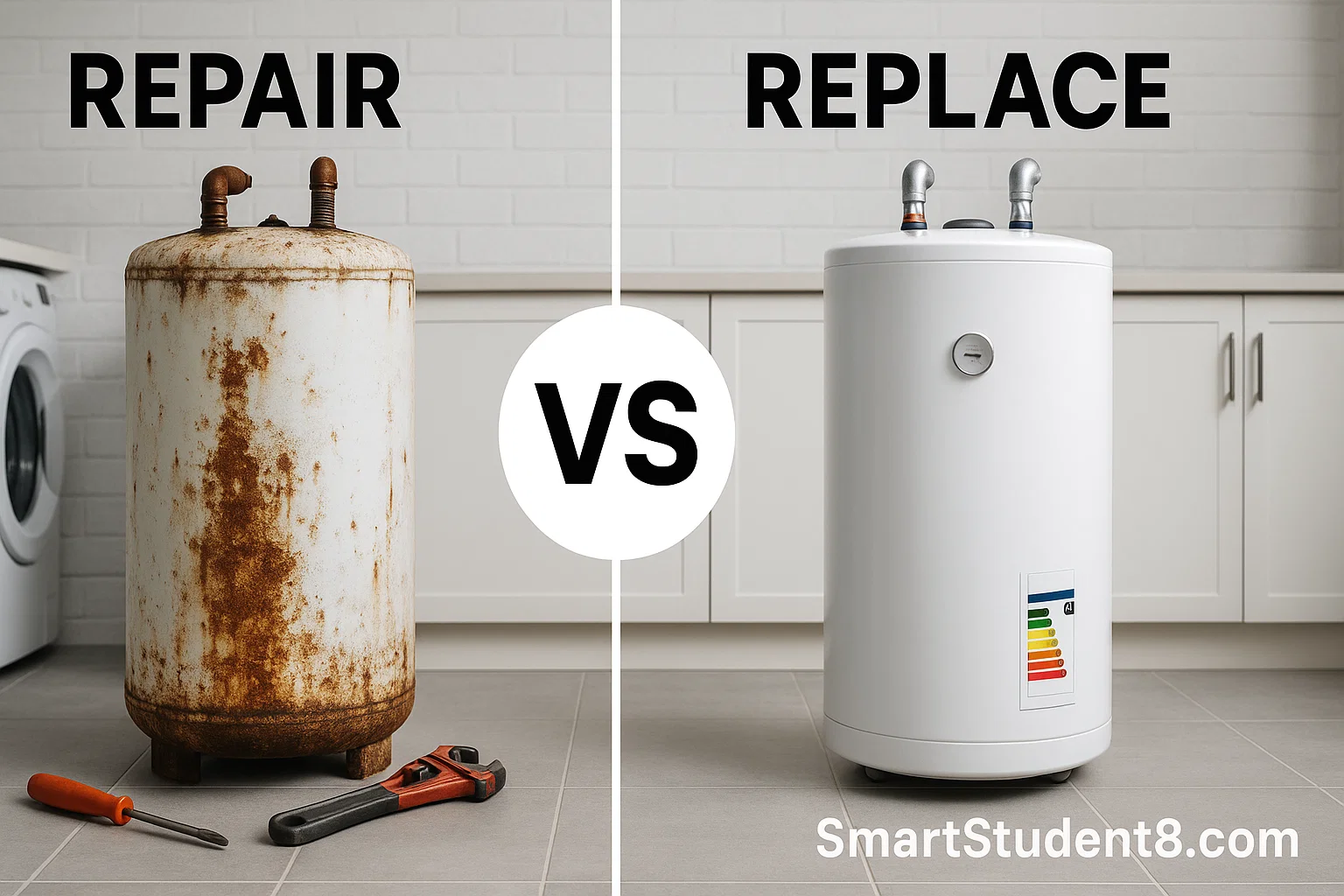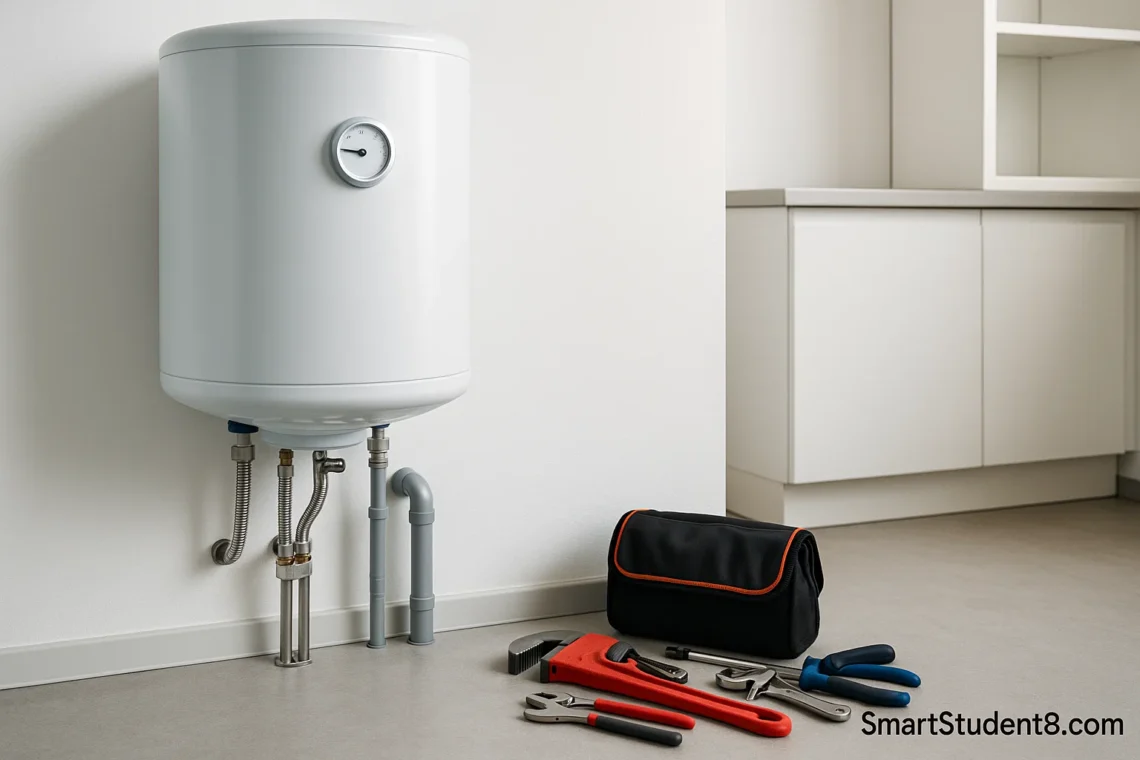A cold shower can be a shock, especially in the chilly mornings of New Jersey. Your water heater may finally give out. Your first thought when you find yourself in this position is probably, “How much will it cost me?” Since I have been involved in countless projects involving plumbing, The answer to this question is not a straightforward number. Installation costs for a New Jersey water heater range from as little as $1,200 up to $5,300. Most homeowners are somewhere in between. It is our goal to help you understand all of the variables that affect this cost, and make an informed choice. The guide covers everything you need to know, including the complexity of installation and the unit type you select.
Budgeting properly is easier when you know these costs. You can avoid unexpected expenses by knowing these costs in advance. We’ll dive in to the factors that determine your final water heater cost.
The average Water Heater Installation Cost in NJ
As you compare prices for new water heaters, you will notice that there is a huge range of price. A standard New Jersey tank water heater costs between $1,200 to $2,500. A tankless water heating installation costs significantly more, and can range from $3,500 up to $5300. The price is not only the unit; the total cost includes the installation, labor by a plumber licensed in your state, all permits required, as well as any possible modifications made to the plumbing, electrical, or gas systems.
I’ve found that replacing a single model with a newer, similar one will cost less. The complexity and cost will rise if, for example, you want to upgrade from a traditional tank system to one that’s tankless, or re-locate the heater to another part of your house. It’s not just the plumber that you use, but also the model and brand of the heater and the exact location in New Jersey where your home is located, which can have an impact on the bill.
| Water Heater Type | Installation Cost Range |
|---|---|
| Tank Water Heater | $1,200 – $2,500 |
| Tankless Water Heater | $3,500 – $5,300+ |
| Gas Water Heater | $500 – $2,700 |
| Electric Water Heater | $600 – $3,500 |
| Power Vent Water Heater | $800 – $1,500 |
| Direct Vent Water Heater | $500 – $1,000 |
When evaluating the cost of ownership, it is important to consider more than just upfront costs. The initial cost and long-term operating expenses of various heaters will be discussed.
Compare the cost and performance of tankless vs. conventional water heaters
Your biggest choice will be between an old-fashioned storage tank and a new tankless water heater (on-demand). Both the cost of installation and energy costs will be affected by your choice. An affordable alternative is a conventional tank-style heater that heats up a water reservoir between 40 and 80 gallons. The installation is usually easier and cheaper, especially when replacing an existing tank heater. The units use standby heat to constantly maintain water temperatures, and this leads to higher energy bills.
Tankless water heating systems, however, provide hot water immediately when you require it. Both the initial price of their purchase and their installation costs are higher. The reason for this is that tankless installations may require an upgrade to your gas line to accommodate more fuel, or to your electrical panel so it can handle the additional power. Tankless heaters have a higher upfront cost but are more efficient. This means that they will save you money over the course of their 20 year lifespan. Tankless heaters provide endless hot water, and they take up less space.
For a better understanding of the differences between them, we’ve broken it down into a few simple categories:
| The Feature | A Traditional Tank Heater | A tankless water heater is a device that heats up the water without using a conventional storage tank. |
|---|---|---|
| Initial Cost | Low ($1,200-$2,500 installed) | The Higher (from $3500 to $5300+ installed). |
| Operating cost | Increased (due standby heat losses) | Lower (heats on demand water) |
| Timespan | 10 Years | Aged 20 years or more |
| Hot Water Supply | Tank capacity is limited | The Endless |
| Wide footprint | Compact, wall-mounted | |
| Installation | Easy to replace, in particular | Utility upgrades may be required for complexes |
You should weigh up the cost of the heater now against its long-term value. Tank heaters are a great option for those on a tight budget. Tankless units are a good option for those who can afford to spend more money now in order to save on future energy costs and enjoy greater convenience.
It is important to consider the type of fuel that your heater burns. This will affect both initial and ongoing costs. Here’s a comparison of gas and electricity models.
Water Heaters: Differences in fuel types: gas vs. electric

You’ll likely be guided by your current utility set-up to decide between an electric or gas water heater. The installation process and costs are different for each. The cost of gas water heaters is higher than that of electric ones, but the monthly costs are lower because New Jersey’s natural gas prices can often be less than those for electricity. Installation of a gas water heater is more expensive and complex. A dedicated gas line is required, along with a ventilation system to exhaust combustion by-products such as carbon monoxide. A plumber may need to install vents or new gas lines if you don’t have them already. This can cost thousands, even hundreds, of dollars.
As they require no venting and gas pipes, electric water heaters can be installed more easily. Electric water heaters can be placed in more places throughout the house. For example, they are able to fit into a smaller closet. Electricity rates are often higher than gas, so the ease of installation may be outweighed by higher costs. A powerful electric model may even need an upgrade to the electrical panel of your home to cope with increased loads. The installation cost should be weighed against fuel prices in the future.
In addition to the actual heater, its physical dimensions and capacities are vital for your home’s requirements.
The Right Size Water Heater For Your Home
It is important to choose the correct size of water heater in order to have sufficient hot water while minimizing energy waste. Unnecessary energy and purchase costs will be incurred if you choose a unit too small. Size is determined by gallons for traditional tank water heating systems. The rule of thumb to follow is:
- For 1-2 persons: A tank of 30-40 gallons
- for 2 peoples: for 40-50 gallon tanks
- 3-4 people: 50-gallon tank
- Five or more people: Eighty-Gallon Tanks and Larger
It’s a little different to size a tankless hot water heater. This is based on flow rate (measured in gallons/minute or GPM) and required temperature rise. This is the maximum volume of hot water that can be produced by the unit at any one time. You can calculate your needs by adding up the GPM for all fixtures you could use. To run both a dishwashing machine (1.5 GPM), as well as a shower, you need a system that is able to handle 3.5 GPM. In NJ, the groundwater has a temperature of 52degF. The difference between this and the hot water you want is 120degF. The needs of your family can be calculated by a professional to determine the right unit.
Some homeowners are shocked by additional charges on installation quotes. Discover these hidden costs.
The Unexpected Costs of Your Bill
It is rare that a water heater quote includes only the cost of the product and labor. There are several other factors that can increase the cost of a water heater installation. A permit is a typical cost. To ensure that the water heater is replaced according to New Jersey code, most towns require a permit. The permit is required to ensure your safety. However, it also adds a fee. A second potential expense would be to bring your connections into compliance with current building codes. Water lines, gas connections or pressure relief devices may need upgrading if your unit is older and was installed years ago.
The following are other costs that may arise:
- Expanding Tank: Several towns in NJ require that a tank be installed along with any new water heater. It absorbs the pressure generated when heating water and protects your plumbing. You can expect to pay $150-300 for this.
- Structure Modifications: The plumber will need to make structural modifications if you’re switching to tankless heaters or moving your heater. They may have to remove drywall and install new pipework, adding to the labor cost.
- The Old Unit: Many professional installers are willing to include removal and disposal in their quotes, but confirm with them to avoid any surprises.
Prepared for the worst-case scenarios, you can create an affordable budget.
Often, the situation is not as serious as it seems. Understanding when a repair is necessary versus a replacement can be crucial.
The Smartest Financial Option: Repair or Replace?

Your first reaction might be to get a plumber out when your water heater fails. It is often the correct thing to do. Fixing problems like a broken thermostat or heating element can cost a couple hundred dollars. If, however, your water heater has reached the typical lifespan of 10-15 years, investing in repairs may not be wise. In general, replacing a water heater is the better option if it costs more than half of what a replacement would cost.
A frequent need for repairs is another warning sign. These costs can add up if you call the plumber to repair your unit every year. New, energy efficient models are not only more reliable, but they will also help you save money over the long term on your utility bill, which will offset any initial cost. Some other signs to replace your unit include substantial corrosion, rusty faucet water, or loud noises coming from the unit. This indicates a sediment buildup which is affecting the efficiency and integrity of the system.
Installing a water heater correctly is equally important to the product itself. Choosing the right professional for your job is crucial.
It is not negotiable to hire a licensed NJ plumber
It may seem cheaper to do the installation yourself or hire an inexpensive handyman, but it is best to leave this job to professionals who are licensed and insured. A poor installation could lead to serious dangers in New Jersey. These include water damage caused by leaks, electrical fires from improper wiring or the release of Carbon Monoxide when gas heaters are poorly vented.
The licensed plumber is familiar with the local building codes, so the installer can ensure that your installation will be safe, compliant, and legal. A licensed plumber will be able to pull all the permits necessary and install everything correctly, from the pressure release valves to seismic straps.
In addition, professional installation can be necessary to ensure that the manufacturer warranty remains valid. In the event that the product fails, and the installation was not done by an expert, the manufacturer could refuse to pay for repairs or replacement. A reputable firm will give you the peace ofmind that your job has been done correctly, and there is someone you can call in case you run into any problems. Ensuring you pay for expert advice upfront will save you money and prevent catastrophic issues down the line.
Every homeowner is looking for ways to save money without compromising on quality or safety.
Read More -: What to do if your smoke alarm is beeping or chirping?
Useful Tips to Help You Save on the Replacement of Your Water Heater
You can still manage your costs even though it is an expensive investment. Obtain at least 3 quotes from plumbers who are licensed. It allows you to not only compare prices, but the work scope and quality of materials that they intend to use. Avoid any quotes that are significantly less than those of the other companies, since they may reflect hidden charges or reduced quality.
Next, look into energy-efficient models. A high-efficiency water heater or one that has been ENERGY STAR certified(r) may initially cost more, but federal tax rebates and local or state utility rebates will help to reduce the initial price. The models you choose will help save money each month by reducing your energy bills. Flexibility in scheduling is another way to save money. There are plumbing companies that offer lower rates during slow periods. Simple annual maintenance like cleaning the tank and removing sediment can prolong the life of a new water heater. This will also prevent expensive future repairs.
New water heaters are one of your most valuable appliances, providing convenience and comfort every day. The cost of installing a water heater in New Jersey may seem overwhelming, but understanding all the variables will empower you to make an intelligent and confident choice. If you choose the best heater, prepare for any additional costs that may arise, and hire a professional to install it, then your installation will be safe and efficient.
Do not wait until a cold shower forces you into action if your water heater is faulty or you’re considering upgrading. To get an exact quote and detailed estimate for your house, we recommend consulting a trusted licensed NJ plumbing company. The plumber can guide you through the options available and help find a solution that suits your budget and your lifestyle.





